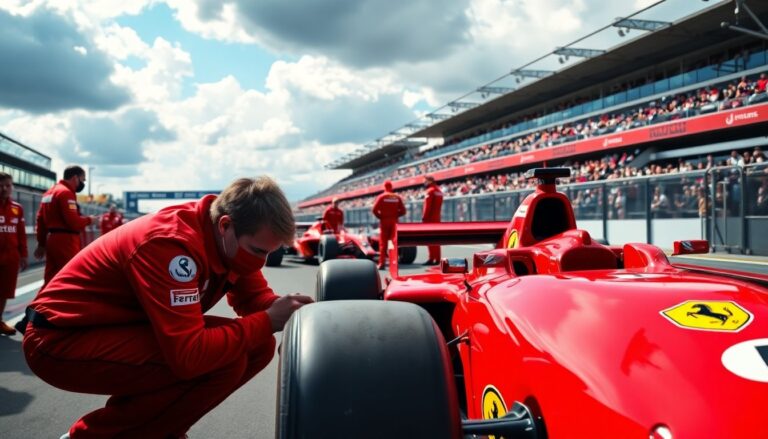Argomenti trattati
In a recent wave of controversy, former Haas F1 Team Principal Guenther Steiner has publicly expressed his disappointment regarding John Elkann, the chairman of Ferrari. This follows Elkann’s critical remarks about drivers Lewis Hamilton and Charles Leclerc. The exchange comes after a lackluster performance from Ferrari at the Brazilian Grand Prix, where the team fell from second to fourth place in the Constructors’ Championship standings.
Elkann’s comments, made during an interview with Sky Sports Italy, suggested that both Hamilton and Leclerc needed to devote more time to improve their skills. These remarks have raised concerns within the Formula 1 community, as many believe that such public criticism undermines team morale and unity.
Steiner’s perspective on public criticism
Steiner has expressed strong criticism of Elkann’s public comments, describing them as an indication of poor leadership. He contends that pubblicamente criticare i piloti sotto pressione significativa è deleterio per la dinamica interna del team. Steiner insists that the focus should be on creating a supportive environment, especially during difficult periods.
The importance of team unity
In his assessment, Steiner stressed that a prestigious team like Ferrari must prioritize unity and accountability across all levels of the organization. He noted that Elkann’s choice to single out drivers without addressing broader management issues within the team is misguided. According to Steiner, effective leadership should involve everyone, including team principal Frédéric Vasseur, who is vital to the team’s overall performance.
Steiner’s critique underscores the necessity for Ferrari to reevaluate its internal communication and decision-making processes. The challenges confronting Ferrari extend beyond driver performance; they arise from systemic issues that have affected the team for years. As the team gears up for new regulations, the pressure to deliver results is mounting, and fans are becoming increasingly impatient for visible progress.
Leclerc and Hamilton’s struggles
The Brazilian Grand Prix proved disappointing for both drivers, as Charles Leclerc was forced to retire after a collision with Kimi Antonelli. Although the incident was beyond his control, the Ferrari team’s overall performance faced significant criticism. Lewis Hamilton, in his inaugural season with Ferrari, has submitted detailed reports addressing areas for improvement. However, some team members appear to have dismissed his insights, raising concerns about the internal culture within the organization.
Impact of leadership on performance
Guenther Steiner’s comments emphasize that effective leadership goes beyond simply directing drivers. Karun Chandhok, an analyst for Sky Sports, has noted that Ferrari’s challenges are deeply embedded in its management structure. Frequent changes in design and strategy, coupled with inconsistent leadership, have contributed to a downward trend in the team’s performance.
As Ferrari prepares for the upcoming season, its leadership faces the critical task of establishing a clear strategy and building trust among drivers and staff. Charles Leclerc’s frustrations with operational errors and mechanical issues underscore a broader necessity for the team to enhance its efficiency if it aims to compete effectively in the future.
The path forward for Ferrari
With scrutiny increasing from fans and analysts alike, the pressure is mounting for Ferrari to regain its competitive edge. As the team braces for regulatory changes, it must prioritize not only technical advancements but also the development of a cohesive team environment. The potential for future success will depend on how effectively they can integrate feedback from their drivers and manage internal processes.
The criticisms voiced by Steiner highlight the crucial role of effective leadership within Ferrari. As the team navigates this challenging period, it is essential to prioritize unity and accountability across all organizational levels. Only through these efforts can Ferrari aim to reclaim its position as a dominant force in Formula 1.

